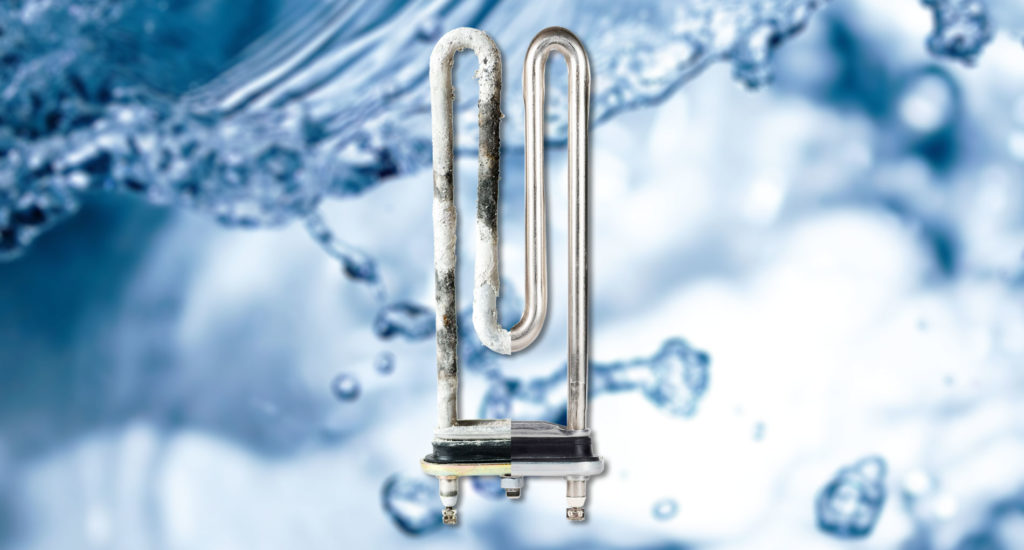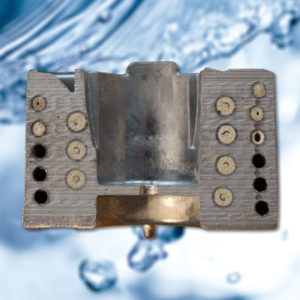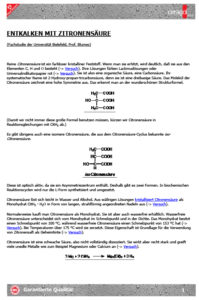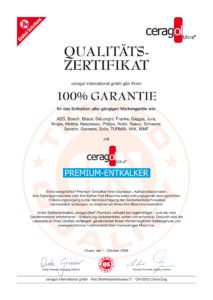Limescale – just what is it exactly?

Limescale deposits can occur wherever water is heated Particularly in devices such as fully-automatic coffee machines, espresso machines and all hot water appliances. In this connection we tend to speak of hard and soft water. The level of hardness of water indicates its degree of lime content. Your waterworks will be pleased to inform you regarding the level of hardness of your water. If your groundwater flows through calciferous rock layers, erosions of magnesium and calcium carbonate cause limescale residues in your water.
Why do we have to descale?
Apart from the coffee quality suffering in terms of flavour, limescale deposits can cause severe damage to your machine and considerably reduce its service life. Because limescale deposits in the machine lead to:
Only regular and early descaling with a top-grade descaler such as thePremium descaler ensures a long service life and optimal coffee enjoyment. Your fully automatic coffee machine is a high-tech device which requires regular and gentle care.
The right time
Fully automatic coffee machines with descaler display
Please ask for your level of hardness at the responsible waterworks and adjust the water hardness according to the manufacturer’s operating instructions. Your device will remind you regarding the next necessary descaling process on the display.
Fully automatic coffee machines without descaler display
A descaling process is required as soon as you notice a delayed performance or irregularities in coffee preparation Another sure sign is the deterioration of the foam layer on the coffee. It is important to descale the machine regularly and early.
Why amidosulfonic acid?
Descaling with citric acid
Citric acid tends to flake during descaling, which may lead to clogging of the valves and water tubes, resulting in high repair costs. Another problem is the sealing of the lime layer with an insoluble coating, which always occurs when using citric acid based descalers.
Descaling with acetic acid
The big problem with descaling using vinegar and acetic acid are the released flavours, which cause a penetrating odour during the descaling process. The plastic parts in your fully automatic coffee machine tend to absorb these odours and have a negative effect on the smell and aroma of your coffee Plastic parts of your device such as seals can be affected by the vinegar or acetic acid.
Descaling with acetic acid
The descaling process with amidosulfonic acid, the active ingredient of our Premium descaler, does not require any application time. It dissolves the limescale in your machine while it is running through and flushes it out. This takes place with completely neutral odour and taste, and your machine is foodsafe again after rinsing.
Descaling with vinegar, acetic acid or citric acid takes much longer than a descaling process with the Premium descaler and is much less effective.
The egg test
The test shows that the Premium descaler on the basis of amidosulfonic acid acts faster than citric acid. But thanks to its additives it is more gentle to other substances.
The lime shell is quickly dissolved, but the sensitive eggskin remains untouched.
The egg is largely destroyed upon the use of citric acid.
What makes a good descaler?
Limescale deposits are dissolved by acidic components in the descaler. Only the right mixture of effective acidic components and protective additives for the metal parts and seals ensures an optimal descaling result. A fast application time and the ability to immediately resume use of the device after rinsing are the basic requirements on a Premium descaler.
What makes the Premium descaler so special?
Our Premium descaler acts up to ten times faster than others. In comparison with almost all other descalers, the use of our product requires no application time at all. This means that you can enjoy your coffee again much faster.
Only 100 ml of our Premium descaler dissolves more than 20 g of limescale, a quantity that is usually sufficient for the complete descaling of a household machine. Our active ingredients prevent flaking in the water tank of your machine, thus ensuring free tubes and valves.
If you adhere to the operating instructions, our high-grade additives ensure optimal corrosion protection; the metal and plastic parts in the device are not affected. ceragol ultra has highly modern additives that are regularly tested and optimised in the laboratory
No chemical residues remain inside the machine after descaling and thorough rinsing. Premium descaler is neztral in odour and taste and therefore does not impair the aroma of your coffee.
For all conventional coffee machine brands, ceragol ultra provides a manufacturer’s guarantee




